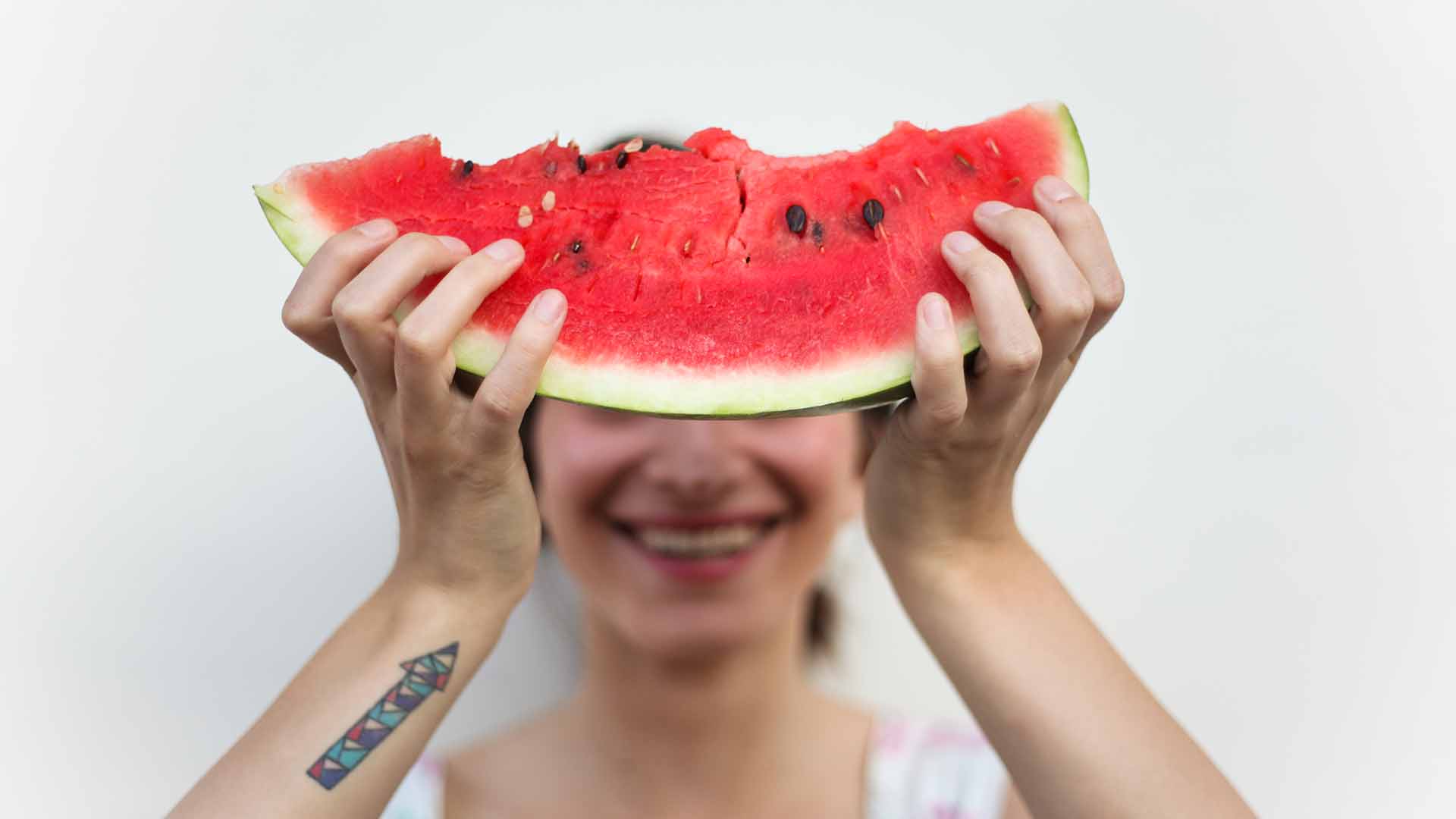-
It’s the most wonderful time of year… but with festive celebrations stretching all through December and into January, there are plenty of temptations to feast a little too merrily, and overindulge in alcohol, sugar and fatty, high-carbohydrate foods. And sadly, the effects of all that delicious Christmassy food often stick around a little longer than we’d like. Studies show that weight gain over the Christmas period is a major factor influencing unwanted yearly weight gain, especially if you’re already carrying more weight than you would like.
Of course, the holidays are probably not the best time to be trying to lose weight, but you can manage and prevent weight gain throughout your celebrations, while still enjoying yourself. The key, the Dietitians Association of Australia says, is being mindful and making smarter food and drink choices.
Here, Lauren McGuckin, Accredited Practising Dietitian and spokesperson for the Dietitians Association of Australia, shares some of her top tips for avoiding Christmas weight gain.

1. Eat lighter. Snack on seasonal fruit (such as cherries and watermelon), a small handful of nuts, or low-fat crackers and a salsa dip. Eating a handful of cherries instead of a handful of lollies will save you around 330kJ and 16g of added sugar.
2. Plan, plan, plan. Take a healthy platter to parties or functions. Include lots of bright, colourful vegetable sticks such as carrot, red and green capsicum, green beans and snow peas. Serve with an avocado dip, beetroot dip or yoghurt-based dip.
3. Drink smarter. If you drink, aim for two glasses of low joule non-alcoholic drinks to every alcoholic drink. Try soda with a squeeze of lime or lemon, or a jug of cold water with cucumber or strawberries and lots of ice for a refreshing change. If you swap a glass of sparkling wine for sparkling water with a squeeze of lemon you will save 470kJ.
4. Eat mindfully. Try to eat slowly, savour every mouthful and enjoy your food over the festive period. You don’t need to eat everything on offer – be selective and enjoy a small amount. Stop eating once you are comfortably full.
5. Get the right support. An Accredited Practising Dietitian (APD) is your diet coach – providing you with individual, expert advice to help you achieve your goals.
For more information or to find an Accredited Practising Dietitian in your area, visit the ‘Find an APD’ section at daa.asn.au
5 ways to avoid festive weight gain

-
Lemon and coconut bliss balls recipe
Roll up your own sweet and zesty treats.
-
5 grab-and-go lunches for work
5 convenient and inspired healthy work lunch ideas.
-
From fussy to foodie
How to help kids try new foods and flavours.
-
4 reasons why you should reduce your sugar intake
Minimising the amount of sugar you consume has benefits beyond your weight. Here are four reasons why you should reduce sugar intake now.
-
How to eat healthy food on a budget
Healthy eating shouldn’t break your budget. Some planning and preparation, plus a smart shopping list, can make a healthy diet for you and your family affordable, delicious and nutritious.
-
The good mood diet
What we eat impacts gut health which has a direct link to our mental health and wellbeing. Learn about healthy gut foods and how to improve mood through diet.
Subscribe to receive the best from Live Better every week. Healthy recipes, exercise tips and activities, offers and promotions – everything to help you eat, move and feel better.
By clicking sign up I understand and agree to Medibank's privacy policy






